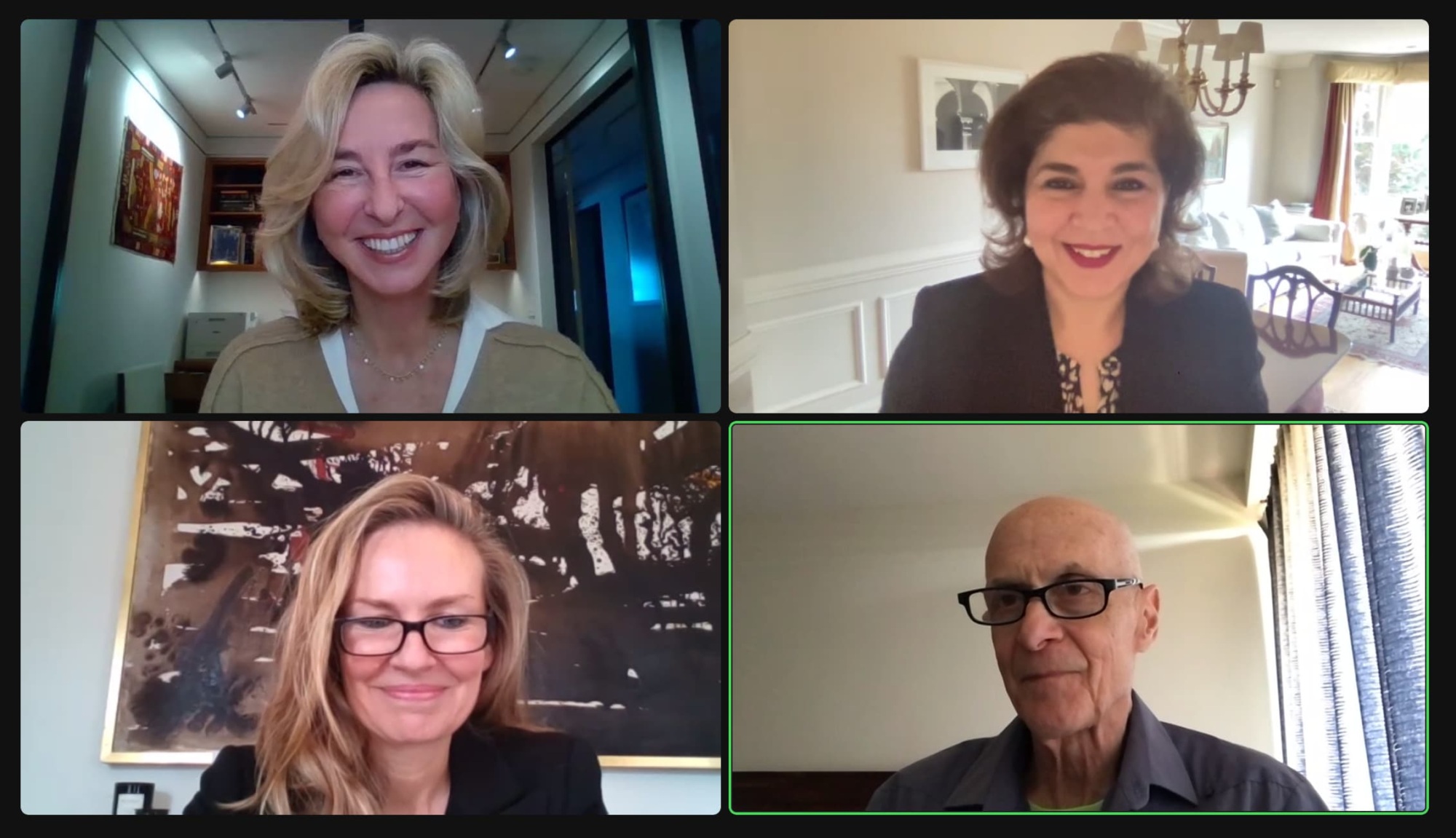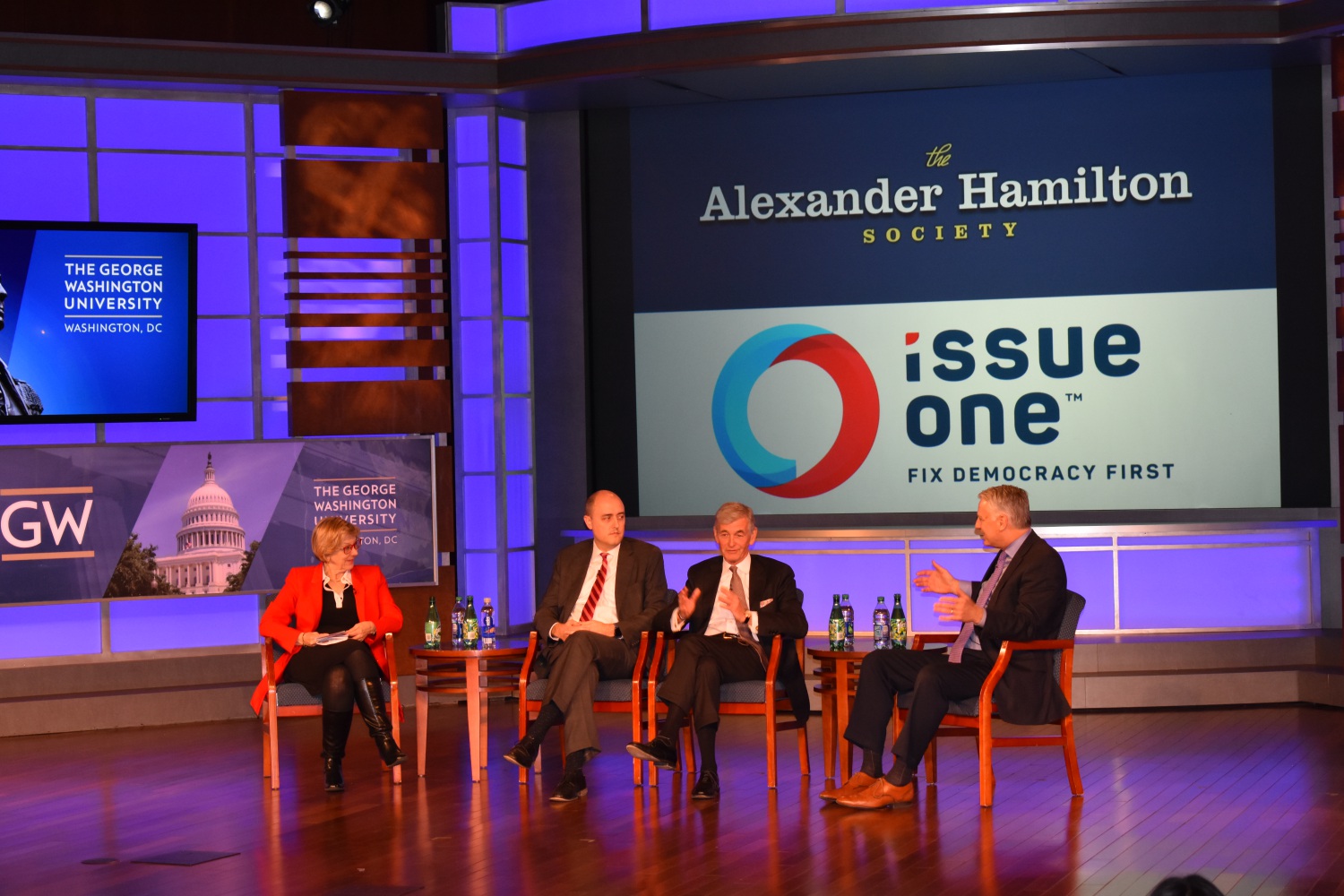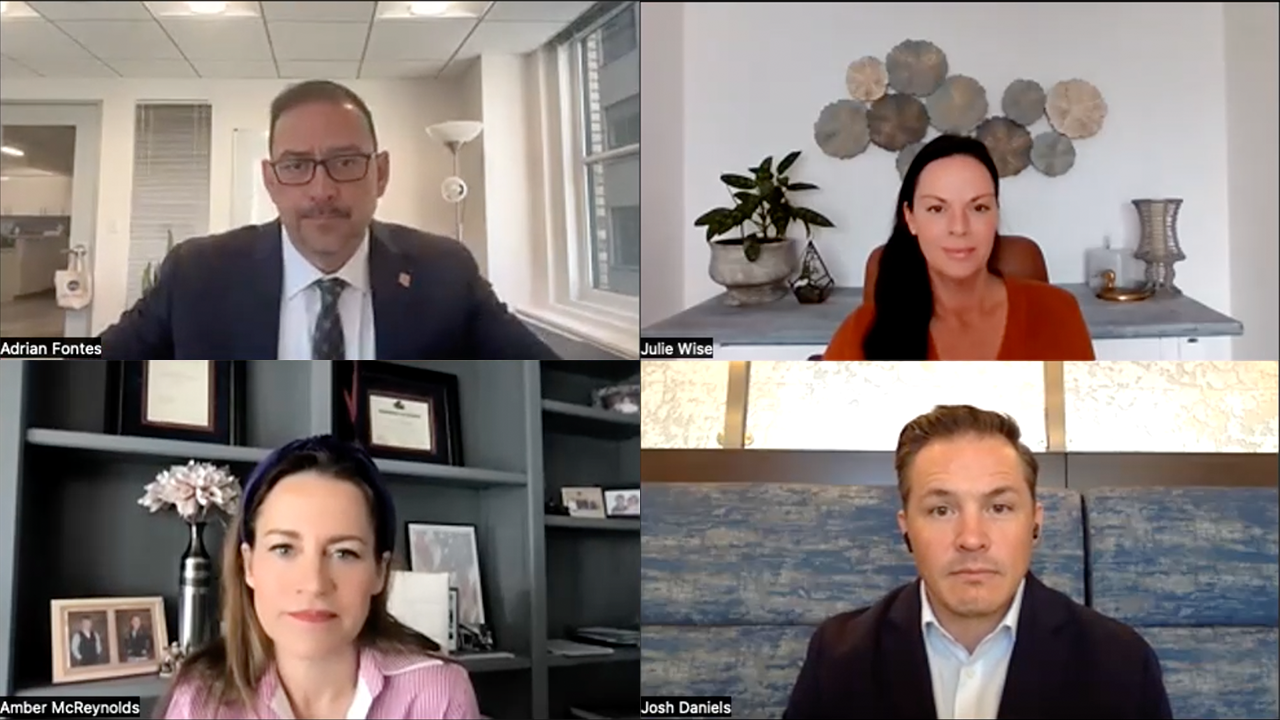
Event Recaps
Experts discuss how social media’s design radicalizes its users
Social media platforms are designed to maximize our attention, suck us in, and keep us hooked. They do this by keeping the public in the dark about how algorithms elevate…
Event Recaps
Issue One’s ReFormers Caucus joined the Alexander Hamilton Society chapter at George Washington University Wednesday evening for an event in our “Democracy = National Security” series to draw connections between congressional dysfunction, foreign policy and future opportunities in Washington for political reform that would strengthen the country’s national security.
The panelists included Issue One ReFormers Caucus Co-chair and former Ambassador to India Tim Roemer (D-IN), ReFormer and 21st Army Secretary John McHugh (R-NY) and the German Marshall Fund’s Jamie Fly, former foreign policy and national security counselor to Sen. Marco Rubio (R-FL), including during his 2016 presidential campaign.
They addressed an audience of young leaders, veterans and former executive branch staff, sharing their concerns that, as Fly said during his opening remarks,“We as a country have not begun to adequately grapple with the foreign actors trying to undermine our democracy.”
The conversation came following the government reopening just days after a politically-motivated shutdown in which the parties spent more time blaming each other — and raising money from the attention — than addressing solutions to the critical issues facing our democracy.
On the domestic front, former Army Secretary and Rep. John McHugh (R-NY) expressed dismay at the inability of the legislative branch to fulfill its core duties, weakening the United States on the global stages while powers like China and Russia fill those power vacuums.
“Until we can get Congress back on track to addressing its basic functions — providing for the defense of the United States, the budget and the operations of government,” said Secretary McHugh, “it is difficult for us to lecture other countries about the benefits of democracy.”
Meanwhile, former 9/11 Commission Commissioner and Ambassador Roemer discussed the changing timeline of radicalization over the past decade through the use of technology since the United States engaged in foreign conflicts abroad in Iraq and Afghanistan. “It originally took them nine months to go to Pakistan and get radicalized in camps and now it takes them two weeks to be radicalized online,” said Roemer. “And on the home front, Congress is shutting down and incapable of designing a long-term cyber-defense strategy.”
Issue One Executive Director Meredith McGehee explained the difficulty of addressing the “tip of the iceberg” of paid, online advertising on the largest social platforms (like Facebook and Twitter) that was aimed at dividing Americans ahead of the 2016 election through the Honest Ads Act. In the Senate, the Honest Ads Act was originally sponsored by Senators Amy Klobuchar (D-MN), Mark Warner (D-VA) and John McCain (R-AZ). Its companion in the House currently has 16 total sponsors — eight Republicans and eight Democrats.
“The Honest Ads Act is one very good example of low-hanging fruit that have bipartisan support to address these issues,” said Fly while also describing a host of related, bipartisan legislation in the Senate to address political reform and infrastructure in the states.
Worse, the United States also has to address domestic political issues including dark money, which covers funds raised and spent whose source is not disclosed. Frequently, outside groups target members of Congress with television ads and flyers in their home districts, but by remaining anonymous, they simultaneously ensure Americans running for office are incapable of responding to their attacks. “These issues of dark money have not been addressed,” said McHugh. “The ads run largely unchallenged and until we give the American people the information and knowledge to form an opinion, we can’t fault them for not reacting because they have nothing to react to.”
Ambassador Roemer struck a similar note: “Now, more and more the people where I come from feel voiceless, helpless and powerless. They feel their elected representatives, as good of people as they are, are caught up in a system of endlessly raising money that leads to following a narrow agenda which no longer represents them,” said Roemer. “The tsunami of money in the system that is not transparent or accountable is a part of that problem.”
At the end of the discussion, the panelists ended on a positive note, reaffirming that for the challenges, past and present, that face the United States, it still has the power and capacity to address all of these issues — if the political leaders have the will and the electorate stays engaged, runs for office and holds them accountable.
Issue: Foreign Interference
Event Recaps
Social media platforms are designed to maximize our attention, suck us in, and keep us hooked. They do this by keeping the public in the dark about how algorithms elevate…
Event Recaps
On October 23rd, 2023 in Washington, D.C., Issue One held an event to kick off Safe Tech, Safe Kids — a campaign partnership led by Project Liberty in collaboration with Issue…
Event Recaps
Issue One convenes election officials for webinar on the impact of high election administrator turnover on 2024, as Faces of Democracy members testify before the Senate about threats to elections...
Yesterday, Issue One hosted a virtual event with current and former election officials providing further insights from our recent “High Cost of High Turnover” report, which revealed an alarming trend:…


